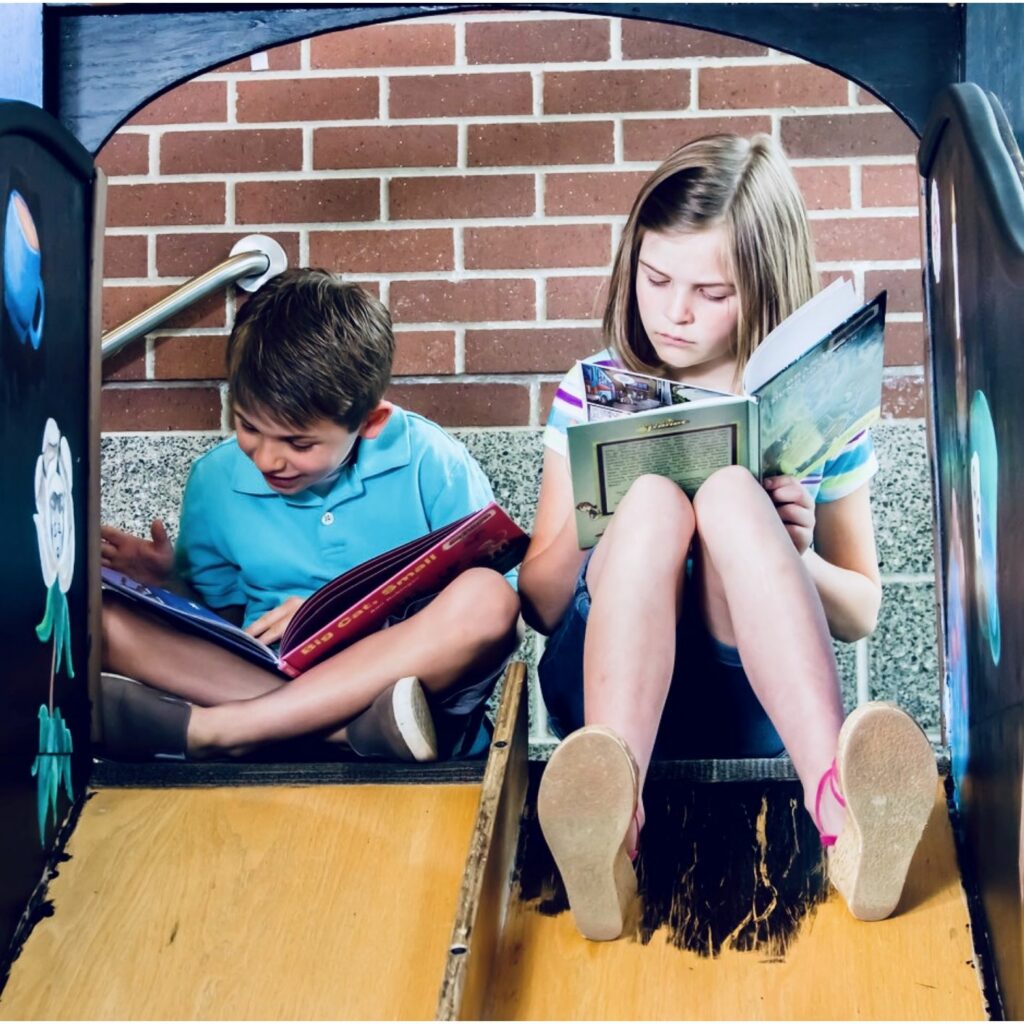The Unstoppable “Reset” Mindset
Reset is for anyone who knows the strain of balancing life on the tightrope of being everything to everyone.

Reading is the most important habit to instill in a child. It will increase their vocabulary, which will directly improve their performance at school. Reading will expand their knowledge in every other area, and open their minds to so many possibilities!
Because children often learn the technical phonetic combinations at school where they focus on the practical side of reading, the love of reading is best fostered at home, and supported by you, the parent. When children are little, take the time to read to them every night, and delight in the stories you discover together. To make that time even more special, here are 10 tips you can use.
Instead of just reading the words in the book, look at the images with your child and see what they tell you. This will teach your child to look for cues in the images that tell him what is about to happen in the book. Using this strategy will help the child increase his vocabulary by enabling him to “guess” what a new word means, just by understanding its context.
By making a special voice for the ogre of the story, then for the little girl he meets, and all the other characters, you help your child imagine the story, making it come to life! Once your child begins to read, even when she is not reading aloud, she will, in turn, adopt the habit of giving book characters their own voice, their own life, which will greatly increase her reading comprehension skills and work with her imagination.
If your child is just learning to read or is an inexperienced reader, it helps when you follow with your finger as you tell the story. This will show him that, in the English language, we read from left to right. It will also help your child discover that every word you are reading is there, in the book, and once your child is beginning to read, he will start visually recognizing whole words. This is like watching a movie with subtitles. You don’t need to read the subtitles if you understand the language, but you tend to want to read them anyway.

When your child is beginning to read alone, make this a great bonding experience, by spending time with them while they read. Many parents put a lot of effort into teaching their children to read, and reading to them every night until they learn to do it alone, then suddenly stop, expecting their child to read on their own. Remember, even though the child can now read, she will miss that time with you and will not feel the same encouragement. Your job is now to show her how great it is to read!
Read her stories still, from time to time, even if she can read them herself, and other times just sit by her and read your own book while she reads hers. You can even let her read you a story for a change. This will not only show her that you like reading, it will still give the two of you this cozy time together.
Make it a time you spend together, just the two of you. Take your child to the bookstore and tell him you would like to buy him a book, one that he will choose. Bookstores have this special feeling to them and are wonderful places to spend a little while just looking. Your child will love the experience so much that he will remember that happy day each time he reads his book at home. If you like, you can do the same by borrowing a book from the library!
Casually in your conversations, refer to the stories you read together with comments like” It’s like that rabbit that we read about in that story, remember? When he couldn’t get out of his home?” This will help your child make his reading experience more valuable, and learn to enrich his personal life with the things he learned about, or just experienced through the book.
When giving your child a book as a gift, write a special message on the inside, sharing with her how much you look forward to sharing this book with her, or how proud you are that she is reading so much. This will strengthen the bond between the two of you, and make the habit of reading even more enjoyable for her.
Children learn by example. Take the time to cozy up and read at home from time to time, a book that you enjoy reading, or even the newspaper. Children will see reading as a part of life and will tend to do the same. If you enjoy reading, they will learn to enjoy reading just by watching you.

During dinner time, or at any time throughout the day, share the things you read about in your books by saying things like “this book made e think about…” or “I loved reading the part where this happened, it reminded me of …”. As weMll, when sharing with your family about something you read, preface it by saying “I read today that …” so your children see other positive examples of how reading enriches your life.
I will never forget the day when my 10-year-old son, having just finished reading a 400-page novel, passed it to me and said, “You should read it, mom. I’m sure you’ll love it. It has a really emotional part in it.” I was bursting with pride already that he was so enthralled with his novel, but what I realized that day was that our bond was so strong, and we had spent so many years reading together and talking about our books, that he knew which books would appeal to me. As well, I could see the confidence in him that reading created, knowing that he was now reading books that were more complex, not simple picture books or children’s stories.
Literacy is the most important skill. Take the time to foster it at home in a way that will make it fun and appealing to your child, so they will enjoy a lifetime of reading and literacy.
About Natacha V. Beim
Natacha V. Beim is a writer, speaker, teacher, and the founder of Core Education & Fine Arts Junior Kindergarten schools You can reach her at [email protected], or read her blog at natachabeim.com.
Reset is for anyone who knows the strain of balancing life on the tightrope of being everything to everyone.

For seamless childcare to reach families province-wide, school districts need ongoing funding and policy support from the provincial government.

The nominations have been tallied, and the voting begins on January 10th! Look at the Family Favourites you nominated! Family Favourite Nominees 2026 Congratulations to all the nominees!
